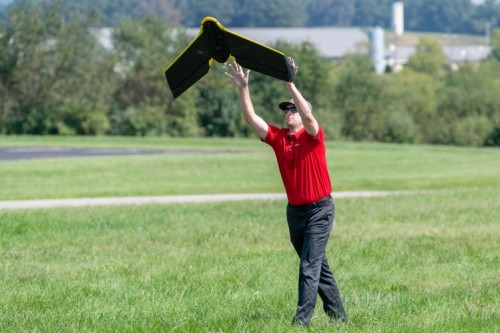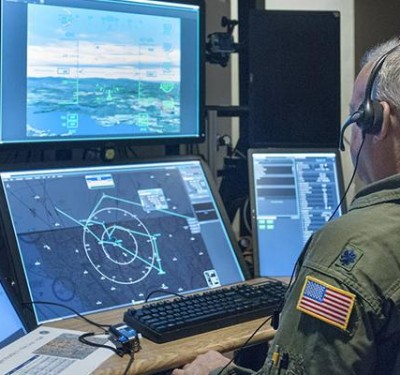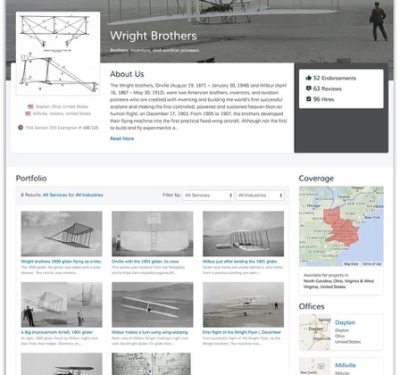
State Farm drone pilots conduct drone flights with Mid-Atlantic Aviation Partnership at Virginia Tech. Photo courtesy of Virginia Tech Mid-Atlantic Aviation Partnership.
For the first time, the Federal Aviation Administration (FAA) has granted a national waiver of restrictions on drone missions allowing State Farm to do damage-assessment flights over people and beyond the line of sight of the pilot.
State Farm has been developing its ability to use unmanned aircraft systems (UAS) to quickly survey damage and speed claims processing. The company was previously granted waivers to do short flights over areas impacted by Hurricanes Florence and Michael using the eBee Classic drone manufactured by senseFly. The experience gained during those missions became part of the request for the new eBee-based, national waivers, which extend through November 2022.
Drones can be especially useful in catastrophe situations where access to impacted areas might otherwise be difficult or impossible due to water, debris and damage to roads and other infrastructure. Such flights are not only a faster way to get a picture of a situation they can help reduce damage by letting people know quickly where to, for example, install tarps to cover a hole in a roof.
“The waiver will provide our claims specialists with another way to efficiently help customers,” said Robert Yi, State Farms’ senior vice president for P&C claims. “We can use drones to assess on-the-ground damage and deploy resources.”
“The continuing high demand for (FAA) Part 107 waivers demonstrates that operators are more eager than ever to harness the great potential of unmanned aviation technology,” said Brian Wynne, president and CEO of the Association for Unmanned Vehicle Systems International (AUVSI). “We hope that proving the benefits of situational awareness provided by drones to insurance and other industries will lead the FAA to move beyond granting waivers on a case-by-case basis, as we do today, and instead implement a regulatory framework that establishes permanent rules for expanded operations, such as flights over people and beyond line of sight, that are necessary for damage assessment and other business applications.”
State Farm has been working with the Mid-Atlantic Aviation Partnership (MAAP) at Virginia Tech for nearly two years on research to build its safety case for the longer eBee flights. In addition to the eBee the firm has been working with Virginia to test the use of rotorcraft as a tool for inspecting roofs and developing the essential safety protocols for such missions.
In May 2018, a Commonwealth of Virginia team managed by MAAP was one of 10 groups selected to be part of the FAA Integration Pilot Program (IPP). State Farm, who is on the Virginia team, is the only insurance company participating in IPP.






